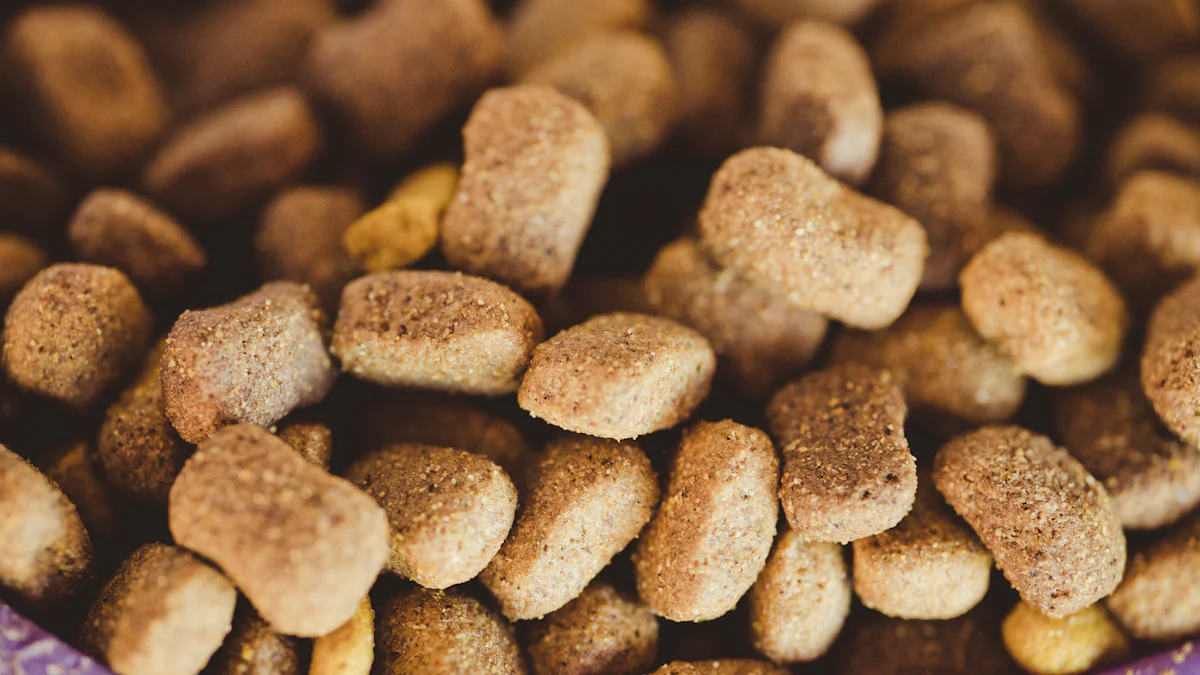
You might be surprised to learn about the nutritional powerhouse that is dried black soldier fly larvae. These larvae offer a rich source of protein, containing up to 43% by weight, making them an excellent alternative to traditional protein sources like soybean meal and fishmeal. Not only do they provide essential nutrients, but they also play a crucial role in sustainable food systems. By converting organic waste into high-quality protein, they reduce reliance on land-intensive crops and overfishing. This makes them a promising option for a more sustainable future.
Nutritional Composition of Dried Black Soldier Fly Larvae
Protein Content
High-quality protein source
Dried Black Soldier Fly Larvae stand out as a remarkable protein source. They contain approximately 40% protein by weight, which rivals traditional protein sources like fishmeal and soybean meal. This high protein content makes them an excellent choice for those seeking to enhance their diet with quality protein. You can rely on these larvae to provide the essential building blocks your body needs for growth and repair.
Essential amino acids profile
The protein in Dried Black Soldier Fly Larvae is not just abundant; it is also rich in essential amino acids. These amino acids are crucial for various bodily functions, including muscle development and immune support. By incorporating these larvae into your diet, you ensure that your body receives a well-rounded amino acid profile, supporting overall health and vitality.
Fat Content
Healthy fats and omega-3 fatty acids
In addition to protein, Dried Black Soldier Fly Larvae offer a substantial amount of healthy fats. These fats include omega-3 fatty acids, which are known for their heart health benefits. Consuming these larvae can contribute to maintaining a balanced diet, providing the necessary fats that support brain function and reduce inflammation.
Role in energy provision
The fat content in these larvae also plays a vital role in energy provision. Fats serve as a concentrated energy source, helping you stay active and energized throughout the day. By including Dried Black Soldier Fly Larvae in your meals, you can benefit from sustained energy levels, making them an ideal addition to your diet.
Vitamins and Minerals
Rich in calcium and iron
Dried Black Soldier Fly Larvae are a treasure trove of essential minerals. They are particularly rich in calcium and iron, both of which are vital for maintaining strong bones and healthy blood. Calcium supports bone density, while iron plays a crucial role in oxygen transport within the body. By consuming these larvae, you can help meet your daily mineral requirements.
Presence of B-vitamins
These larvae also contain a variety of B-vitamins, which are essential for energy metabolism and overall well-being. B-vitamins help convert food into energy, support brain function, and promote healthy skin and hair. Including Dried Black Soldier Fly Larvae in your diet can provide you with these important vitamins, contributing to a balanced and nutritious diet.
Health Benefits of Consuming Dried Black Soldier Fly Larvae
Muscle Growth and Repair
Importance of protein in muscle development
Protein plays a crucial role in muscle development. When you consume Dried Black Soldier Fly Larvae, you provide your body with a high-quality protein source. This protein supports muscle growth and repair, making it an excellent choice for those looking to enhance their physical performance. The larvae’s rich amino acid profile ensures that your muscles receive the necessary nutrients for optimal function.
Comparison with traditional protein sources
Compared to traditional protein sources like fishmeal and soybean meal, Dried Black Soldier Fly Larvae offer several advantages. They produce significantly more protein per acre with fewer resources. This makes them not only a sustainable option but also a cost-effective one. You can rely on these larvae to deliver a balanced amino acid profile, which is essential for muscle health and overall well-being.
Bone Health
Contribution of calcium and phosphorus
Calcium and phosphorus are vital minerals for maintaining strong bones. Dried Black Soldier Fly Larvae are rich in these minerals, providing a natural way to support bone health. By including these larvae in your diet, you help ensure that your bones receive the nutrients they need to stay strong and healthy.
Impact on bone density
The high calcium content in Dried Black Soldier Fly Larvae contributes to improved bone density. Strong bones are essential for preventing fractures and maintaining mobility as you age. By consuming these larvae, you can support your bone health and reduce the risk of bone-related issues.
Immune System Support
Role of vitamins and minerals
Vitamins and minerals play a significant role in supporting your immune system. Dried Black Soldier Fly Larvae are packed with essential nutrients, including B-vitamins, calcium, and iron. These nutrients help strengthen your immune system, making it more effective at fighting off infections and illnesses.
Antioxidant properties
Antioxidants are crucial for protecting your body from oxidative stress. Dried Black Soldier Fly Larvae contain antioxidants that help neutralize harmful free radicals. By incorporating these larvae into your diet, you can enhance your body’s natural defense mechanisms and promote overall health.
Comparison with Other Protein Sources
Environmental Impact
Sustainability of insect farming
Insect farming, particularly the cultivation of black soldier fly larvae, stands out as a sustainable practice. You can appreciate how these larvae convert organic waste into high-quality protein. This process not only reduces waste but also minimizes the need for land-intensive crops. By choosing Dried Black Soldier Fly Larvae, you support a farming method that requires less land and water compared to traditional livestock farming. This makes insect farming a more environmentally friendly option.
Lower carbon footprint compared to livestock
When you consider the carbon footprint, insect farming offers significant advantages. The production of black soldier fly larvae emits fewer greenhouse gases than conventional livestock farming. This lower carbon footprint contributes to a reduction in overall environmental impact. By incorporating Dried Black Soldier Fly Larvae into your diet, you help decrease the demand for resource-heavy protein sources, promoting a more sustainable future.
Nutritional Comparison
Protein efficiency ratio
The protein efficiency ratio (PER) is a measure of how well a protein source supports growth. Dried Black Soldier Fly Larvae have a favorable PER, comparable to traditional protein sources like fishmeal. This means you can rely on them to provide the necessary nutrients for growth and development. Their balanced amino acid profile ensures that your body efficiently utilizes the protein, making them a valuable addition to your diet.
Cost-effectiveness and accessibility
Dried Black Soldier Fly Larvae offer a cost-effective alternative to conventional protein sources. Their production requires fewer resources, which translates to lower costs. You can access this nutrient-rich protein without breaking the bank. Additionally, their ability to thrive on organic waste makes them an accessible option in various regions, providing a reliable protein source for diverse populations.
Dried Black Soldier Fly Larvae offer numerous nutritional benefits, making them a valuable addition to your diet. They provide a rich source of protein, essential amino acids, healthy fats, and vital minerals like calcium and iron. Their potential as a sustainable protein source is significant. By converting organic waste into high-quality protein, they support a circular food system and reduce environmental impact. Considering insect protein in your future dietary choices not only benefits your health but also contributes to a more sustainable and environmentally friendly food system.
